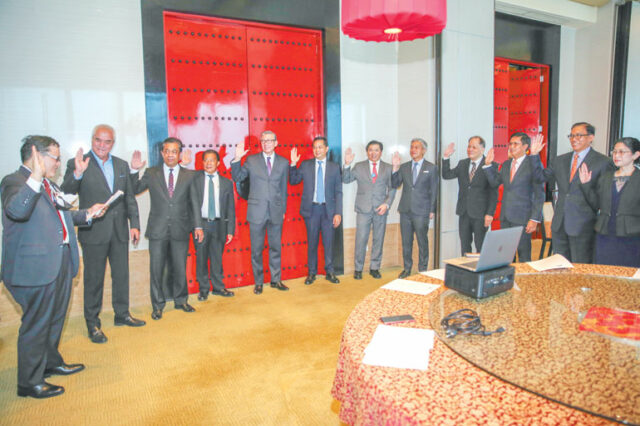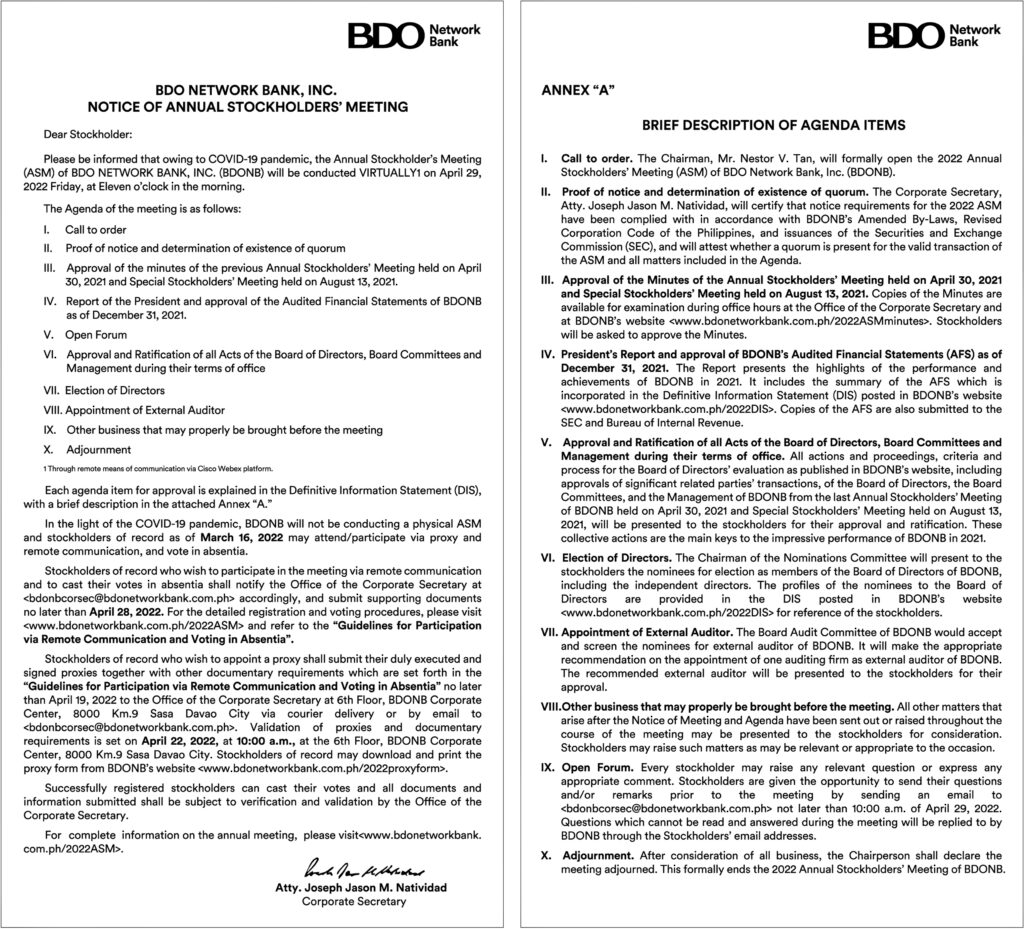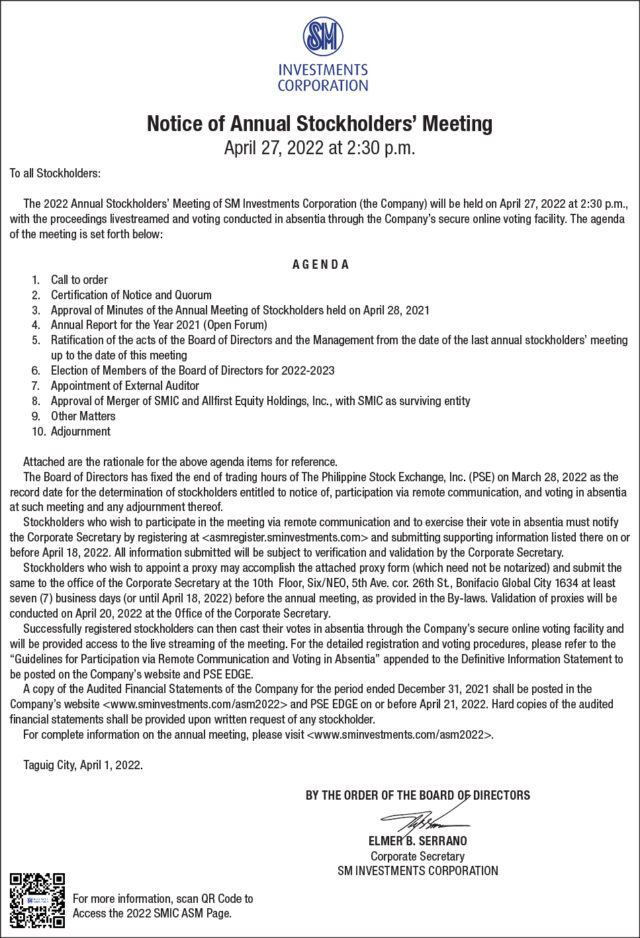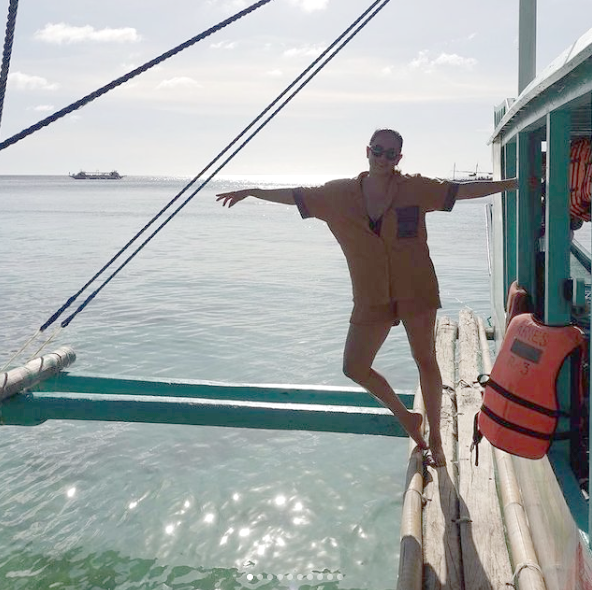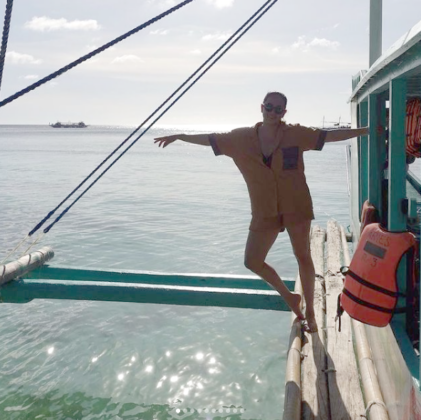It is no longer limited to formal occasions
WHEN we think of Philippine textiles, we usually think of them as seen on the indigenous people who make them, in museums, or worn at absolutely formal occasions. But Studio Süg founder Bea Constantino has proven time and time again that Philippine textiles can be integrated into daily life, as seen in her own outfits.
During an eight-day interisland media familiarization tour organized by Philippine Airlines (PAL) and the Tourism Promotions Board (TPB) around Boracay, Cebu, and Coron, Ms. Constantino wore her creations during activities as mundane as lunches and dinners, and even slightly more taxing activities like boat rides and hikes. BusinessWorld observed how easy and functional these outfits were even in high humidity and water exposure, with minimal, and sometimes utilitarian, styling.
One of our particular favorites was her own Datu Boxy Set, shirt and shorts coordinates trimmed with Yakan weaves in the pockets and sleeves. Ms. Constantino, in an interview while waiting for our flight back to Manila, describes Yakan as feeling like tweed and having minimal stretch. “How do you produce and integrate that and still be able to produce easy wear that’s comfortable — especially in our climate, right? It’s tropical. That’s why I always mix it with really presko (cool) fabrics,” she said.
Ms. Constantino has been a stylist in the Philippine fashion industry for almost 20 years. She has parlayed that into a former career in publishing, as well as doing consultations with brands (we had first met her online, styling a summer collection for a Japanese brand earlier this year).
“In 2016, I had experienced a really terrible burnout,” she told us — she had about 13 years of experience in the field at that point. “I felt that I wasn’t really contributing anymore to the industry, or society.” She took a three-month break, emerging with a new idea influenced by her heritage.
“I grew up with stories from my aunts and parents about back in Mindanao, we have such a colorful heritage,” she said, noting that her family came from Zamboanga City and Sulu.
She means “colorful” quite literally: she was confronted with Tausug fabrics, particularly Pis Siyabit from Sulu, made with “bold geometric patterns” and “clashing colors,” seeing the colors fuchsia, orange, yellow, and teal. “I have this colorful heritage, and then I have this know-how in the fashion industry.
“I grew up in Manila, but I call that home as well. I just felt so attracted by the bold and bright patterns of the textiles in Mindanao. That’s what my eyes have always been opened to,” she said.
In 2016 she started the brand — then known as Herman & Co., named after a German ancestor who had settled in Sulu. And it was under this brand that she appeared in the 2019 edition of lifestyle fair ArteFino. She has since rebranded to Studio Süg.
A huge part of the beauty of these textiles are the stories behind them. However, devoid of context, can indigenous fabrics still be beautiful, displayed perhaps in a store window? “I think they’re very attractive, because of the bold and bright patterns,” she said. “As a brand, it’s important for us to communicate the history behind it,” she was quick to remind us.
“The patterns are attractive on their own, but knowing the story: that the weaver, she was doing it from memory, no set pattern or template; in all the millions of meters they’ve produced, no two weaves are the same,” she said. “The history behind it always goes hand-in-hand. I feel like the brand’s responsibility is to be able to communicate that alongside the actual fabric.”
Ms. Constantino, while helping indigenous communities with her products, does not describe her work as a social enterprise. “It’s really on a transactional basis,” she says, though she professes to buy their products with fair trade prices, practices, and transparency. Ms. Constantino, through a friend, had solidified the brand’s identity as a “cultural enterprise.” Explaining the difference, she said, “Much as I want to help the communities — and I see that they need a lot of help — I can’t afford, on my own, to nurture a community… I’m not sustaining a community. I don’t tie up with any LGUs or NGOs.
“I may not be able to sustain a community in the way of giving them resources, or to be able to grow and expand their artisanal crafts. The aim of the brand is really to keep continuing telling the story of culture and heritage.”
CULTURAL APPROPRIATION
She discussed the gaps that make for a minefield of cultural appropriation, such as using sacred fabrics for inappropriate uses. “How do you even know what lines you’re crossing? Who’s to say?”
She cites that there are efforts by the National Commission for Culture and the Arts (NCCA) as well as indigenous peoples’ councils, but, “There’s no specific handbook [that says], ‘don’t do this; you can do that.’ We don’t have that yet.
“The brands are in an on-your-own journey. Bahala ka na to research,” she said. “There’s no one to police it.
“I feel like education is key. But we don’t really have a reference book.”
Ms. Constantino rides on a wave of an awareness of indigenous textiles in the mainstream, rising in height since the mid-2010s. “I feel like it was the advent of people realizing how detrimental fast fashion was,” she said.
At the same time, while stakeholders in the Philippine fashion industry started to want to slow down, there was a rise in local platforms, such as fairs, that wanted to promote local industry. “Then you have all these platforms. There are so many products that are well-made. People started realizing that just because it’s made in the Philippines, it doesn’t mean that it’s cheap or poorly made. You can actually have world-class quality products that are made by artisans in the Philippines.”
It took a long time for indigenous textiles to hit the general public, thanks to efforts by numerous brands, as well as the Philippine Tropical Fabrics Law*, but she acknowledges that there’s still a long way to go. “I think the way to really sustain it is for consumers to keep supporting local brands. That’s really the only way. Plus, more platforms also. ArteFino was there, [but so is] Katutubo Pop Up Market,” she said. For the brands, “We have to keep churning out fresh ways or products, so you’ll keep consuming without getting saturated.
“There’s so much to do!” — Joseph L. Garcia
*Republic Act 9242 or the Philippine Tropical Fabrics Law prescribes the use of local fabrics as material for uniforms of all government officials and employees.



